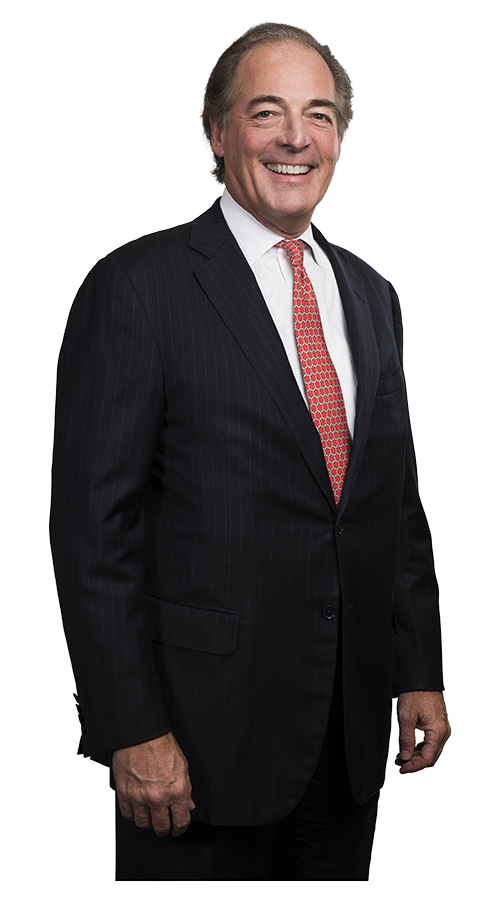- Alma J. Aguirre
- Katy Merrill Andre
- Courtney Culver Baker
- Stephen Bres
- Thomas H. Burton, III
- Giorgio “George” Caflisch
- Victor L. Cardenas Jr.
- Adam B. Chambers
- Ben Connally
- Casey Craft
- Kimberley L. Doom
- Clint Dye
- Stephanie F. Erhart
- Amanda J. Flanagan
- Dalby Fleming
- Joseph A. Garnett
- Steven O. Grubbs
- Jamie Guidry
- Christina “Tina” E. Gutierrez
- Christopher R. Jackson
- James W. Karel
- Travis Livermore
- Donald Loving
- Cade Lunsford
- Dale B. McMath
- Amy Mitchell
- Dawn A. Moore
- Brent Myklebust
- Raymond A. Neuer
- Kevin Niknam
- Nancy A. Norman
- David Oh
- Christopher A. Palumbo
- George P. Pappas
- R. Edward Perkins
- Lara M. Price
- Carolyn K. Rangel
- James E. Rensimer
- Richard A. Sheehy
- Wesley T. Sprague
- Brian Tagtmeier
- Jana H. Taylor
- Erik Veliz
- James L. Ware
- Ann P. Watson
- Michael P. White
- Christene Wood
- Justin T. Woods
- David A. Wright
- Michael Yanochik

Article
Supreme Court Strikes Down Private Employer Vaccine-or-Test Mandate
The U.S. Supreme Court halted the Biden administration’s vaccine-or-test mandate for private employers Thursday, holding that the Department of Labor’s Occupational Safety and Health Administration (OSHA) overstepped its bounds in issuing the sweeping rule. The directive would have required private companies with at least 100 employees, who collectively employ about 84 million people in the United States, to require workers to either provide proof of vaccination or take weekly negative COVID-19 tests and wear face coverings.
The Ruling
The high court ruled 6-3 along ideological lines to block OSHA’s Emergency Temporary Standard (ETS) to enforce the mandate, noting that the Occupational Safety and Health Act empowers the Secretary of Labor to set workforce safety standards, not broad public health measures. “The Act’s provisions typically speak to hazards that employees face at work,” the Court stated. “Permitting OSHA to regulate the hazards of daily life – simply because most Americans have jobs and face those same risks while on the clock – would significantly expand OSHA’s regulatory authority without clear congressional authorization.”
A vaccine mandate is “strikingly unlike the workplace regulations” typically passed by OSHA, according to the court, which noted, “A vaccination, after all, cannot be undone at the end of the workday.” Imposing a vaccine mandate on 84 million Americans in response to a worldwide pandemic is simply not “part of what the agency was built for,” the Court said.
The three dissenting justices argued unsuccessfully that the court should defer to OSHA on this matter.
“Who decides how much protection, and of what kind, American workers need from COVID-19? An agency with expertise in workplace health and safety, acting as Congress and the President authorized? Or a court, lacking any knowledge of how to safeguard workplaces?” the judges wrote in their dissent. “Here, an agency charged by Congress with safeguarding employees from workplace dangers has decided that action is needed. The agency’s Standard is informed by a half century of experience and expertise in handling workplace health and safety issues.”
What the Ruling Means for Employers
Employers covered by the mandate have been in limbo for the past two months as they waited to see how the legal challenges to the ETS would play out in the courts. While not technically dead, the ETS is on life support. The battle over the rule’s validity will continue in the Sixth Circuit Court of Appeals, but it is unlikely that the ETS will go anywhere after the Supreme Court’s slap-down. In any event, the ruling blocks OSHA from enforcing the mandate.
However, because the revised deadline to implement many pieces of the ETS was January 10 – three days before the defeat – many employers have already moved forward with instituting and enforcing their vaccination policies, whether with or without a testing option for unvaccinated employees. President Joe Biden appealed to businesses to continue moving forward with vaccination policies. “I call on business leaders to immediately join those who have already stepped up – including one third of Fortune 100 companies – and institute vaccination requirements to protect their workers, customers, and communities,” Biden said in a statement shortly after the Supreme Court announced its decision. Labor Secretary Marty Walsh vowed that OSHA will be “evaluating all options” to ensure workers are protected from COVID-19.
Your Workplace Policy
As the pandemic continues, employers must take precautions to not only provide employees with a safe work environment, but to comply with OSHA’s existing rules for workplace safety. The ETS may be done for now, but employers should carefully consider implementing some form of vaccination and/or testing policy, while taking state laws into consideration. COVID-19 safety will continue to be a major focus of OSHA’s enforcement efforts for the foreseeable future.
“Employers are responsible for the safety of their workers on the job,” Secretary Walsh said in a statement. “Regardless of the ultimate outcome of these proceedings, OSHA will do everything in its existing authority to hold businesses accountable for protecting workers, including under the Covid-19 National Emphasis Program and General Duty Clause.”
If you have questions about OSHA compliance or if you are looking to contest an OSHA citation or prepare for the OSHA inspection process, give us a call. The OSHA lawyers at Pappas Grubbs Price PC have deep expertise in OSHA matters ranging from compliance to OSHA lawsuits.















































